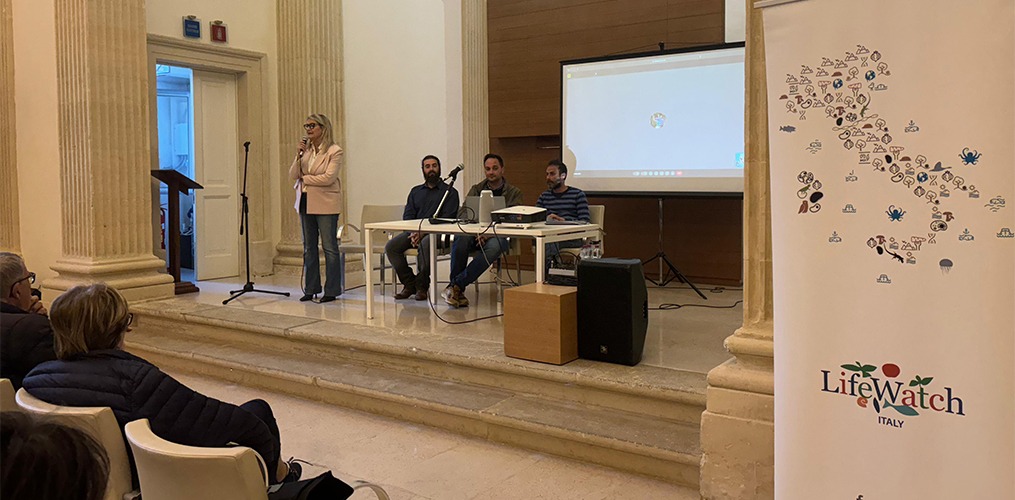
On Wednesday 3 April, the “Hic Sunt Lupi” project held its first public meeting “The return of the wolf in Salento: let’s get to know it” in Lecce, Italy.
The meeting was opened by the Councilor for Environment of Regione Puglia, Anna Grazia Maraschio, the Mayor of Lecce, Carlo Salvemini and hosted representatives of the experts involved in the project, like Paolo Ciucci, Professor at Sapienza-University of Rome, and Francesco Cozzoli and Francesco De Leo, researchers at the National Research Council (CNR-IRET), Lecce, and Ruben Cataldo, archaeologist and President of Archeo-Rec.
This was the first of a series of meetings foreseen within the project to involve the local population, not only on the objectives of the project, which has started monitoring and gathering data on the presence of wolves in Salento to get to a better understanding of the situation and pave the road towards management measures. The wolf is a protected species and its return in Salento is a fact of scientific and ecological relevance, however it is also an issue with such a strong impact on local communities for a variety of reasons (security, economical, etc.). Many are the concerns linked to the return of this predator which sometimes lead to the development of “fake-news”, like the erroneous idea that it was deliberately reintroduced in various areas, just to make an example. Disseminating science-knowledge information and facts on the wolves, their return in this specific area and their management is a critical aspect for the success of the project. “Hic Sunt Lupi” is investing to achieve a true engagement of the local population, also thanks to initiatives of citizen science, where data coming from people’s observations will be collected, validated and hosted on the LifeWatch Italy Citizen Science platform.
Hic Sunt Lupi is a project of Regione Puglia, CNR-IRET, and the Sapienza University of Rome, with the support of LifeWatch Italy, the National Biodiversity Future Center and the University of Salento.
More information is available here: https://www.lifewatch.eu/2023/12/18/hic-sunt-lupi/.